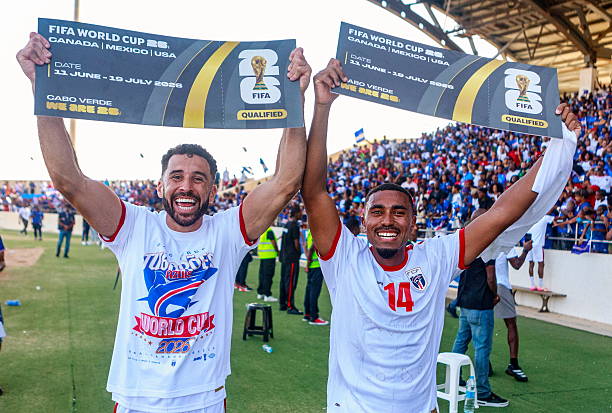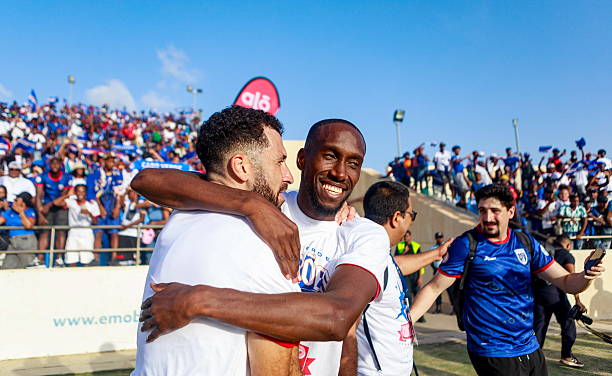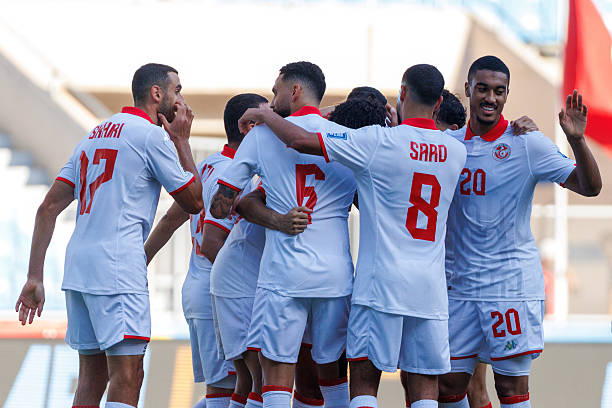
On this Tuesday, October 14, 2025, the curtain fell on the African zone qualifiers for the 2026 World Cup. Nine groups, nine direct qualifiers, and four playoff contenders — the best runners-up. There were first-timers, comebacks, and confirmations. Here’s everything you need to know from the African qualifiers.
THE QUALIFIED TEAMS
- EGYPT
For the third time in their history, the Pharaohs will play in the World Cup. In a group that included Burkina Faso, a tight battle was expected — and indeed it came. Yet Egypt’s experience and individual brilliance ultimately made the difference. The job was done, albeit with unconvincing performances that leave coach Hossam Hassan in a delicate position. Egypt advances, but with a fading generation and young players still struggling to make their mark.
- Senegal
September 9, 2025, 30th minute at Stade des Martyrs: Senegal was down 2–0 to a fired-up Congo. Earlier draws, notably against Sudan, had already complicated their path. But when things got tough, the Lions of Teranga showed immense character, rallying to win 3–2. That comeback perfectly summed up Senegal’s campaign — resilience, adaptability, and flashes of brilliance from stars like Illiman Ndiaye and Pape Matar Sarr. The 2022 African champions have reminded everyone why they remain one of the continent’s powerhouses.
- South Africa
– Stunning — that’s the only word to describe South Africa’s qualifying journey. Firmly leading their group, the Bafana Bafana nearly saw it all slip away on September 29, 2025. Following a match against Lesotho where Mokoena was fielded despite suspension, they suddenly dropped to second behind surprise leaders Benin. The “Squirrels” entered October in pole position, but South Africa roared back. A commanding win over Rwanda, combined with Benin’s defeat to Nigeria, sealed their ticket to America. After a brilliant AFCON 2023 semifinal run, the Bafana Bafana continue their rise with a first World Cup appearance since 2010 — and the fourth in their history.
- Cabo Verde
One of the biggest surprises of the qualifiers. With a population of just 500,000, Cape Verde has achieved the impossible. Blending experience and youthful courage, the island nation toppled a Cameroon side too inconsistent to challenge for a direct spot. For the first time ever, Cape Verde will be represented at a World Cup — a fitting reward for a nation on a steady upward curve, already impressive during the last AFCON.

- Morocco
Perhaps the easiest qualification route of any African team. With Eritrea withdrawing from the group, Morocco faced little real competition. Aside from a slip-up in Tanzania, it was a perfect run in terms of results. The Atlas Lions now boast 15 consecutive victories across all competitions.
But beneath the surface, concerns remain. The football has been unconvincing — even alarming — raising doubts about Morocco’s competitiveness ahead of the next AFCON, which will be held on home soil. Disjointed play, poor chemistry, and a visibly frustrated coach have stirred debate, especially after a heated press-room exchange between Walid Regragui and a critical journalist.
- Côte d’Ivoire
After a grueling qualifying phase where Gabon proved a stubborn challenger, the Elephants finally clinched their first World Cup berth since 2014. Despite occasional struggles in their performances, Emerse Faé’s side did the job — most notably by earning a vital point against Gabon. Building on their heroic 2023 AFCON title, the Ivorians confirmed their resurgence with a qualification that was wildly celebrated across the country.
- Algeria
El Khadra is back on the world stage. After appearances in 1982, 1986, 2010, and 2014, Algeria returns to the World Cup for the first time in 12 years. The joy was immense after their qualification-clinching win over Somalia. There were stumbles — a home defeat to Guinea in June 2024 and another draw with the same opponent in September 2025 — but the inconsistency of both Guinea and Mozambique helped Algeria along the way. Their two wins over Mozambique stood out: a 2–0 victory in Maputo and a resounding 5–1 in Tizi Ouzou.
Mohamed Amine Amoura has been the undisputed star — 10 goals, the top scorer of the qualifiers, and decisive speed in critical moments. Without him, Algeria might well have dropped points against the likes of Mozambique or Botswana. Yet, despite the results, doubts linger. Petković’s tactical emptiness, the overreliance on aging players like Mahrez, Mandi, Tougaï, Atal, and Bentaleb — all underperforming — make it hard to see Algeria as truly competitive heading into both the AFCON and the World Cup.
- Tunisia
Quite possibly the most consistent team of these qualifiers. The Carthage Eagles were rock-solid from start to finish. Quietly, Tunisia has built one of Africa’s most stable programs over the past two decades — since their 2004 AFCON triumph. They’ve reached four of the last six World Cups and routinely go deep in AFCON. Their football has become increasingly proactive, and even on bad days, they know how to grind it out. The decisive win over Equatorial Guinea was a perfect example — goalkeeper Aymen Dahmen was heroic, securing a clean sheet and qualification for 2026. Tunisia advances quietly, but with real conviction.

- Ghana
The Black Stars had few problems on their way to the World Cup. Expected to be challenged by Mali, they instead watched their rivals fade — as so often. Ghana handled their business against the Malians, while Madagascar played spoiler without seriously threatening. Experience and star power, especially from Tottenham’s Mohammed Kudus, carried Ghana through. Yet questions remain: the team won’t feature at the upcoming AFCON in Morocco, and performances have been underwhelming — typified by a dull draw against the Comoros. Without Kudus’s brilliance, what would have become of the Black Stars? That’s the question coach Otto Addo must answer, with just seven months left before the World Cup.
THE PLAYOFFS CONTENDERS
The qualification format allows the four best second-placed teams to contest an additional playoff round. The mini-tournament will feature semifinals and a final in November, with the winner advancing to face a team from another confederation in an intercontinental playoff scheduled for March.
Among those four playoff nations are Gabon and Congo, who gave Ivory Coast and Senegal a tough fight, as well as the Nigerian team that rescued its campaign with a 3–0 win over Benin, and a Cameroon side in turmoil — yet always capable of rising to the occasion when it matters most.
See you in November and March, when we’ll find out whether Africa can send a tenth representative to North America.